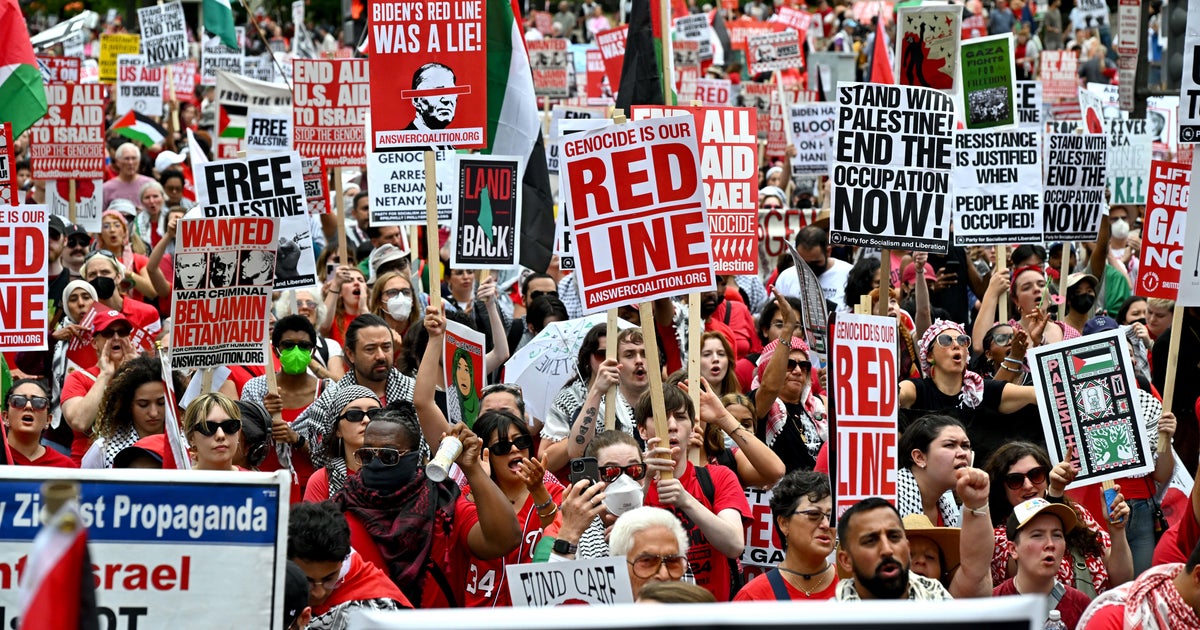Women are leading the push to topple Sudan's Omar Hassan al-Bashir, and suffering for it
As protests engulfed her home country of Sudan, Marine Alneel sat in New York City, watching videos of her friends chanting and marching to demand an end to the 30-year rule of dictator Omar Hassan al-Bashir. She was living in the U.S. on a student visa, but she decided to risk her own safety to fly back to Khartoum and join a movement she felt personally connected to.
When she arrived in late December, Alneel recognized the scene of empty tear gas canisters and bullet casings on the streets and the graffiti on the walls. "Signs of the movement," she called it.
But she soon found herself in prison, wondering when she would be able to return to the U.S.
For three months, Sudanese citizens devastated by the skyrocketing cost of basic goods have taken to the streets, demanding President Bashir resign. In response Bashir, a military dictator indicted on genocide charges and blamed for the economic crisis crippling his nation, declared a state of emergency.
There were new, large-scale protests on Thursday, organized pointedly on the eve of International Women's Day specifically to honor Sudanese women's role in leading the uprising against Bashir. Videos emerged online appearing to show protesters, male and female, chanting in the streets, being arrested and in some cases beaten in the back of pick-up trucks driven by Bashir's security services.
But despite the harsh reaction from Bashir's security services, amid which at least 32 civilians have been killed and dozens arrested, the protests have only gained momentum.
Women have been at the forefront of the protests against Bashir, organizing marches and standing on each others' shoulders to lead chants calling for his ouster.
Women lead the charge again
"People are very angry regarding these emergency laws," Nuha Bakheet, a leader of the Sudanese Professional Association (SPA), the body organizing the protests, told CBS News. She said Bashir has done nothing to address the country's economic crisis.
With foreign debts of more than $50 billion, the government's response has been to print more money, driving inflation. Bread prices tripled and the cost of a gallon of gas shot from about 50 cents to $5, a huge challenge to the daily life of ordinary Sudanese.
But Bakheet has hope. She notes that peaceful protest, with women as a pivotal force, has toppled tyrants in the country before.
"Women in Sudan were known as warriors, politicians, and pioneers against colonialism," said Bakheet, referring to the 1964 "October Revolution" which toppled a previous dictator.
A few weeks ago, Sudanese security forces sprayed tear gas to break up a protest outside a women's prison, led by women demanding the release of fellow activists inside.
Going home to protest
When Alneel arrived in Khartoum, she met with a group protesting in Burri, a neighborhood where families leave homes open to protesters, with baking soda and vinegar left out to relieve pain from tear gas.
A sharp trilling sound echoed through streets of Sudan. The "zaghareet," an ululating cry issued by women across the Middle East and North Africa in celebration, has come to signal the beginning of many protests in Sudan. Alneel said it's difficult for security forces to prove the cry is being made as a call to protest.
"There are moments when it's safe. That's when you're feeling the excitement," she said. "And then a few minutes later you are running while you are being chased by security forces."
Tear gas filled the air and the crowd dispersed. Alneel followed a few others into a home that had been left open. A protester dragged her into a storage shed and told her to be quiet, but they were found by a security guard who beat her and forced her into a pick-up truck.
When she realized she was being arrested, she kicked one of the security officers in the groin out of anger.
"I shouted at him, 'do you actually like this government?'" she recalled. " I think he didn't expect this."
Over the next few days, Alneel and other female protesters were moved between the prison and police buildings and told nothing about their fate.
"Women would break down and cry hysterically," she recalled.
At one point Alneel and her fellow inmates heard people chanting and smelled tear gas from the other side of the prison walls. It gave them an "emotional boost" to know Bashir's forces hadn't dissuaded the protesters.
Alneel was released after about a week in detention and came back to New York. But she hasn't disconnected.
Alneel frequents a Facebook group popular among Sudanese women, which was originally a forum to "shame and blame" men who had mistreated them but has now become a place for women to shame violent members of Bashir's security forces in particular.
She said the group was shocked when someone posted a photo of a female guard at one of Bashir's prisons. She said many had assumed that fellow women would refuse to work for the regime.
After her own imprisonment, however, Alneel said she was able to relate more to female guards from lower socioeconomic backgrounds, who she saw working "around the clock," treated, she said, almost like prisoners themselves.
"These are women who are so oppressed by the regime," she said. "They can't afford to protest the government. They'll lose their jobs, can't feed their family. So we are protesting for them."





